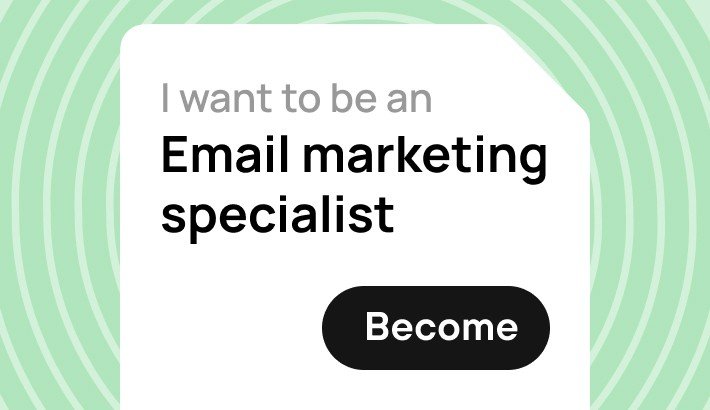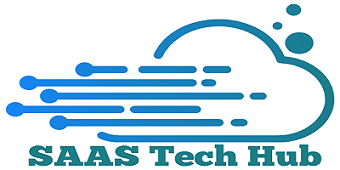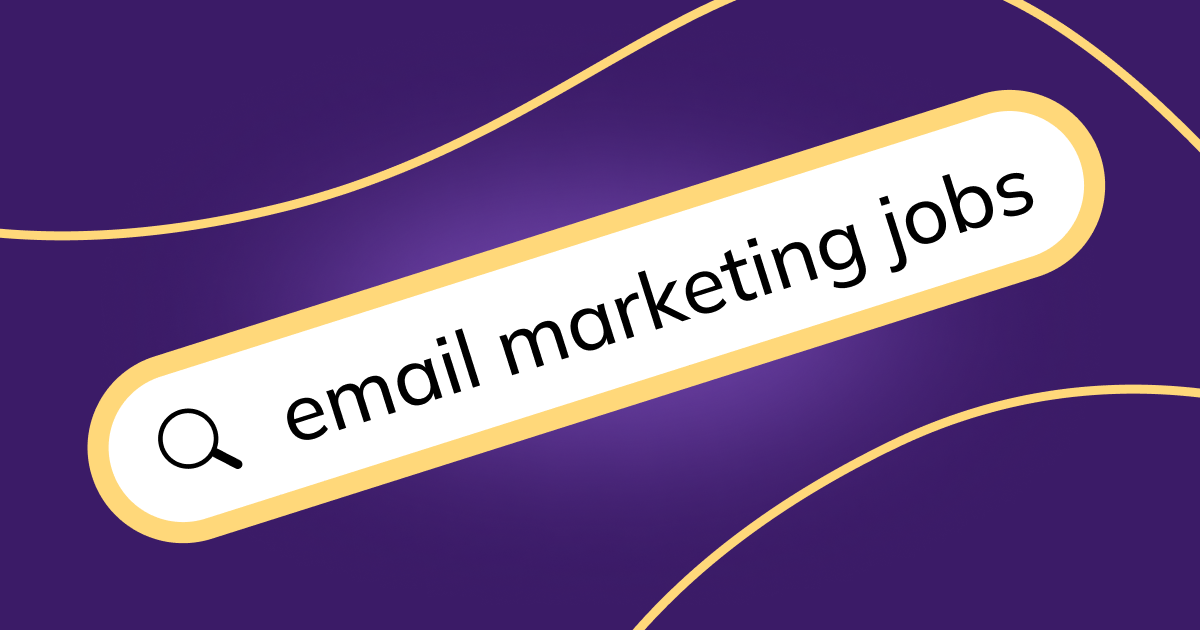Becoming an email marketing expert is a valuable skill in today’s digital world. It opens doors to numerous career opportunities and helps businesses thrive.
Email marketing is not just about sending out emails. It’s about understanding your audience, crafting engaging content, and analyzing results to improve over time. Whether you are a marketer looking to specialize, a business owner wanting to boost sales, or a beginner eager to learn, this guide will help you.
We’ll break down the steps you need to take to become an expert. From building a solid foundation to mastering advanced strategies, you’ll find everything you need to succeed in email marketing. Let’s get started on your journey to becoming an email marketing expert.
Introduction To Email Marketing
In today’s digital age, email marketing has become a crucial tool for businesses. It allows direct communication with customers. A well-executed email campaign can drive sales and build brand loyalty. Let’s dive deeper into the world of email marketing.
What Is Email Marketing?
Email marketing involves sending commercial messages to a group of people via email. These emails can be:
- Advertisements
- Promotions
- Newsletters
- Updates
Through email marketing, businesses can inform, engage, and convert their audience. It’s a direct way to connect with potential and existing customers.
Importance Of Email Marketing
Email marketing offers many benefits. Here are a few reasons why it is important:
| Benefit | Description |
|---|---|
| Cost-Effective | Email marketing is cheaper than traditional marketing. It requires minimal resources. |
| High ROI | It delivers a high return on investment. Every dollar spent can yield significant returns. |
| Targeted | Emails can be personalized. This increases the chances of engagement. |
| Measurable | Results can be tracked. Open rates, click rates, and conversions can be analyzed. |
To sum up, email marketing is an essential tool for modern businesses. It helps in reaching a wide audience effectively and efficiently.

Credit: learn.g2.com
Building A Strong Foundation
To become an email marketing expert, you need to start with a strong foundation. This involves understanding your audience and setting clear goals. These steps will guide your email marketing efforts and help you create effective campaigns.
Understanding Your Audience
Knowing your audience is crucial for email marketing. Start by gathering data about your subscribers. Use tools like surveys, social media, and website analytics. Create detailed profiles of your typical customers. These profiles should include:
- Age
- Gender
- Location
- Interests
- Buying behavior
Segment your audience based on this data. This allows you to send personalized emails that resonate with each group. Personalization increases engagement and improves open rates.
Setting Clear Goals
Clear goals are essential for measuring success. Start by defining what you want to achieve with your email campaigns. Common goals include:
- Increasing open rates
- Boosting click-through rates
- Generating more leads
- Driving sales
Use the SMART criteria to set your goals:
| Criteria | Description |
|---|---|
| Specific | Clearly defined and easy to understand. |
| Measurable | Quantifiable and trackable. |
| Achievable | Realistic and attainable. |
| Relevant | Aligned with your overall business goals. |
| Time-bound | Set within a specific timeframe. |
Once you set your goals, track your progress. Use metrics such as open rates, click-through rates, and conversions. Adjust your strategies based on your performance data.
Creating Effective Email Campaigns
Creating effective email campaigns is crucial for successful email marketing. The right approach can lead to higher open rates and better engagement. This section covers key elements to help you craft compelling emails.
Crafting Compelling Subject Lines
The subject line is the first thing your audience sees. It should grab their attention. Keep it short and clear. Use action words to spark curiosity. Avoid spammy words to stay out of the junk folder.
Personalize your subject lines to make them more appealing. Adding the recipient’s name can make a big difference. Test different subject lines to see what works best. A/B testing helps improve your strategy over time.
Writing Engaging Content
Your email content should be engaging and relevant. Start with a strong opening. It sets the tone for the rest of the email. Make your message clear and concise. Avoid long paragraphs to keep readers interested.
Use bullet points or numbered lists to break up text. This makes it easier to read. Include a clear call to action. Tell your readers what you want them to do. Make it easy for them to take action.
Personalize your content to connect with your audience. Use their name and mention their preferences. This makes the email feel more tailored to them. Always proofread your emails before sending. Check for errors and ensure your message is clear.

Credit: stripo.email
Designing Eye-catching Emails
Creating visually appealing emails is crucial for any email marketing expert. Designing eye-catching emails can significantly improve open rates, click-through rates, and overall engagement. Below are some essential tips to help you design emails that stand out in your subscribers’ inboxes.
Choosing The Right Template
Selecting the right template is the first step in designing an attractive email. Templates provide a structure for your email, ensuring consistency and professionalism.
- Responsive Design: Ensure your template is mobile-friendly. Most users check emails on their phones.
- Brand Consistency: Choose a template that aligns with your brand’s colors and fonts.
- Easy Navigation: Opt for a simple layout. Avoid clutter. Make it easy for recipients to find information.
Incorporating Visual Elements
Visual elements can enhance the appeal of your emails. Images, graphics, and videos catch the reader’s eye and make your content more engaging.
- High-Quality Images: Use clear and relevant images. Avoid stock photos that look generic.
- Infographics: Simplify complex information with infographics. They are easy to understand and visually appealing.
- Videos: Embed short videos to convey your message. Videos can boost engagement significantly.
Remember to balance text and visuals. Too many images can slow down loading times. This can frustrate users and lead to higher bounce rates.
Segmentation And Personalization
Segmentation and personalization are key components in effective email marketing. They help you target the right audience and deliver relevant content. By understanding your audience’s needs, you can create emails that resonate. This improves engagement and boosts conversion rates. Let’s explore how you can segment your email list and personalize your messages.
Segmenting Your Email List
Segmenting your email list involves dividing your subscribers into smaller groups. These groups are based on specific criteria. Age, location, purchase history, and interests are common examples. By doing this, you can send more relevant emails to each group. This increases the likelihood of engagement.
Start by collecting data on your subscribers. Use sign-up forms and surveys to gather information. Analyze this data to identify different segments. Create segments based on common characteristics. For instance, group subscribers by age or past purchases.
Keep your segments updated. Review and adjust them regularly. This ensures you are always targeting the right audience with your emails.
Personalizing Your Messages
Personalizing your messages means tailoring content to each subscriber. Use their name in the email. Reference their past purchases or interests. This makes the email feel more personal and relevant.
Use dynamic content to personalize your emails. This allows you to show different content to different segments. For example, display different product recommendations based on purchase history. Personalized subject lines also help. They can increase open rates and engagement.
Test different personalization techniques. See what works best for your audience. Use analytics to track your results. Adjust your strategy based on what you learn. Personalized emails create a better experience for your subscribers. They are more likely to engage and convert.

Credit: careersidekick.com
Automating Your Email Marketing
Automating your email marketing can save you time and effort. It helps you send messages to your audience without manual work. Automation can improve your email marketing results and keep your audience engaged.
Setting Up Autoresponders
Autoresponders are emails sent automatically based on user actions. They can welcome new subscribers, confirm purchases, or remind customers about abandoned carts. Setting up autoresponders is simple and can make your email marketing more effective.
| Step | Description |
|---|---|
| 1 | Choose an email marketing tool with autoresponder features. |
| 2 | Create email templates for different actions. |
| 3 | Set triggers for each autoresponder. |
| 4 | Test your autoresponders before launching. |
Creating Drip Campaigns
Drip campaigns are a series of emails sent at specific intervals. They keep your audience engaged over time. Drip campaigns are useful for nurturing leads or providing education about your products or services.
To create an effective drip campaign, follow these steps:
- Plan your campaign goals and timeline.
- Create valuable content for each email.
- Segment your audience based on their interests.
- Schedule your emails to be sent at the right times.
- Monitor and adjust your campaign based on performance.
Automation in email marketing can boost your productivity and results. By setting up autoresponders and creating drip campaigns, you can keep your audience engaged and increase your email marketing success.
Analyzing And Optimizing Performance
Becoming an email marketing expert requires more than just creating great content. You must constantly analyze and optimize your campaigns to achieve better results. This involves tracking key metrics and using A/B testing strategies to understand what works best. Let’s dive into these aspects in detail.
Tracking Key Metrics
To improve your email marketing, you need to track key metrics. These metrics help you understand the performance of your campaigns. Here are some important ones:
- Open Rate: The percentage of recipients who open your email.
- Click-Through Rate (CTR): The percentage of recipients who click on links within your email.
- Bounce Rate: The percentage of emails that do not reach the recipient’s inbox.
- Conversion Rate: The percentage of recipients who take the desired action after clicking a link.
- Unsubscribe Rate: The percentage of recipients who opt-out from your mailing list.
By monitoring these metrics, you can gauge the effectiveness of your emails and make data-driven decisions.
A/b Testing Strategies
A/B testing is crucial for optimizing email performance. It involves comparing two versions of an email to see which performs better. Here’s how to do it:
- Identify Variables: Choose elements to test, such as subject lines, images, or call-to-action buttons.
- Create Variations: Develop two versions of your email, with only one variable changed.
- Segment Your Audience: Split your email list into two equal groups.
- Send Emails: Send each version to one of the groups.
- Analyze Results: Compare the performance of both versions using your key metrics.
A/B testing allows you to understand what resonates with your audience. It helps you make informed decisions and refine your email strategy.
Staying Compliant With Regulations
In the world of email marketing, staying compliant with regulations is crucial. It ensures your campaigns are ethical and legal. This section will guide you through understanding the key regulations and implementing best practices for compliance.
Understanding Gdpr And Can-spam
GDPR (General Data Protection Regulation) is a regulation in the European Union. It focuses on data protection and privacy. It applies to all companies processing personal data of individuals in the EU.
Key points of GDPR:
- Obtain explicit consent before sending emails.
- Provide an easy opt-out mechanism.
- Ensure data security and privacy.
CAN-SPAM (Controlling the Assault of Non-Solicited Pornography And Marketing) is a US law. It sets rules for commercial email and messages. It gives recipients the right to stop receiving emails.
Key points of CAN-SPAM:
- Do not use misleading headers or subject lines.
- Include a valid physical address in your emails.
- Honor opt-out requests promptly.
Implementing Compliance Best Practices
To stay compliant, follow these best practices:
- Use Double Opt-In: Confirm email subscriptions with a verification email.
- Maintain Clean Lists: Regularly update and clean your email lists.
- Clear Privacy Policy: Inform subscribers about how you use their data.
- Easy Unsubscribe: Make it simple for users to opt-out.
- Monitor and Audit: Regularly check your compliance with regulations.
Here’s a quick reference table for compliance:
| Regulation | Key Requirements |
|---|---|
| GDPR | Explicit consent, easy opt-out, data security |
| CAN-SPAM | No misleading headers, valid address, honor opt-outs |
By understanding and implementing these practices, you ensure your email marketing is compliant and trustworthy.
Advanced Strategies
Becoming an email marketing expert requires more than basic knowledge. To stand out, you need advanced strategies. These strategies will help you create effective campaigns. Let’s explore some of these advanced techniques.
Utilizing Data And Analytics
Data and analytics are crucial for email marketing. They provide insights into your audience’s behavior. You can track open rates and click-through rates. Analyzing this data helps you understand what works best. Identify patterns and trends in your campaigns. Use this information to improve your strategies. Tailor your emails based on the data. This approach increases engagement and conversion rates.
Leveraging Ai And Machine Learning
AI and machine learning can transform your email marketing. These tools help automate tasks. They analyze large amounts of data quickly. AI can personalize email content for each subscriber. Machine learning predicts future behaviors. It suggests the best time to send emails. These technologies increase efficiency. They also improve the relevance of your emails.
Conclusion And Next Steps
Reaching the end of your journey to become an email marketing expert feels rewarding. Now, focus on continuous improvement and explore more resources. This will help you stay ahead in the field.
Continuous Learning
Learning never stops. Email marketing trends and tools keep evolving. Stay updated with the latest changes. Follow industry blogs and attend webinars. Participate in forums and online communities. These actions keep you informed and sharp.
Resources For Further Development
Several resources can help you grow further. Websites like HubSpot, Mailchimp, and AWeber offer valuable insights. They have blogs, guides, and tutorials. Udemy and Coursera provide courses tailored for email marketing. These platforms cover various aspects, from basics to advanced strategies.
Books are another great source. Titles like “Email Marketing Rules” by Chad S. White and “The New Email Revolution” by Robert W. Bly offer in-depth knowledge. Podcasts and YouTube channels also provide useful tips and tricks. Subscribe to channels like Email on Acid and Marketing School.
Frequently Asked Questions
What Skills Are Needed For Email Marketing?
To excel in email marketing, you need copywriting, data analysis, and segmentation skills. Understanding automation tools is also crucial. Knowledge of email design can enhance engagement.
How Do I Start With Email Marketing?
Begin by building an email list. Use sign-up forms on your website and social media. Choose an email marketing platform. Create engaging content and segment your audience for targeted campaigns.
What Is The Best Email Marketing Tool?
Popular email marketing tools include Mailchimp, Constant Contact, and Sendinblue. Choose based on your needs, budget, and feature requirements. Each offers unique strengths.
How To Improve Email Open Rates?
To improve open rates, craft compelling subject lines. Personalize emails and segment your audience. Send emails at optimal times. Regularly clean your email list to remove inactive subscribers.
Conclusion
Becoming an email marketing expert takes practice and dedication. Focus on understanding your audience. Create engaging and valuable content. Test different strategies and analyze results. Keep learning and adapting to new trends. Building strong relationships with your subscribers is key.
Stay patient and consistent with your efforts. Use these tips to improve your email campaigns. With time, you will see success. Remember, persistence is essential in email marketing.


